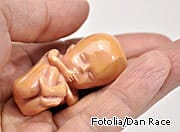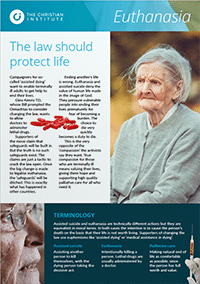Stem cells derived from human embryos are set to be used on people for the first time in a series of clinical trials on those suffering from spinal cord injuries.
The move has been approved by the Obama administration, but will be fiercely resisted by those opposed to the harvesting of stem cells from embryos, a process which destroys them.
Geron, a California based biotech company, was granted permission to begin trials on patients left paralysed by spinal cord injuries by the US Food and Drug Administration (FDA) last week.
Reservations
While this is the first trial using stem cells derived from human embryos, there are already over 100 treatments using adult stem cells which do not involve the destruction of human embryos.
Scientists believe that injecting a substance known as GRNOPC1, which is derived from embryonic stem cells, into a patient’s spine will trigger the regrowth of damaged nerve cells and eventually allow the patient to recover feeling and movement.
However Dr David Prentice, a fellow at the pro-life Family Research Council, said: “Even many pro-embryonic stem cell scientists have expressed reservations about Geron’s trial, that it is not proven even in rats.”
He added: “In the meantime, adult stem cells have already shown published scientific evidence for safety and successful repair of spinal cord injury in patients. Only adult stem cells offer both an ethical and successful path to healing”.
Safety
And Josephine Quintavalle, spokeswoman for pro-life group Comment on Reproductive Ethics (CORE), said: “You just cannot deliver a cure for one person at the expense of another’s life.”
Geron’s application to conduct the trial was initially approved in January 2009, but the trial was suspended following safety concerns.
Dr Richard Fessler, professor of neurological surgery at Northwestern University, said: “If found to be safe and effective, the therapy would provide a viable treatment option for thousands of patients who suffer severe spinal cord injuries each year.”
Press reports indicate that the trial is expected to go ahead within the next two months.
Ban
The controversial nature of embryonic stem cell research led former President George W Bush to impose a ban on the federal funding of research into new stem cell lines in 2001.
Mr Bush argued that he was defending human life, but his ban was overturned by President Barack Obama in March 2009.
Last month it was revealed that cells from aborted babies could be used to treat Parkinson’s disease following scientific research into the condition.
Aborted
The contentious idea involved harvesting cells from aborted babies, and transplanting these into the brains of patients who were suffering from the disease.
The controversial procedure was first trialled more than 20 years ago, but was stopped after it was found to be causing some patients to have uncontrollable spasms.
But a team of scientists from the Medical Research Council’s Clinical Sciences Centre at Imperial College London, led by Dr Marios Politis, have found a way to prevent the spasms.


